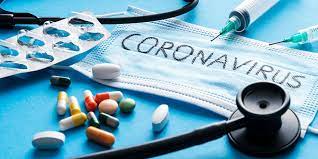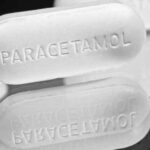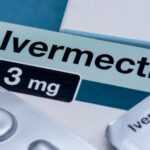List of Drugs to Use, Avoid When Treating COVID-19

In March 2020, the World Health Organization (WHO) declared the COVID-19 outbreak a pandemic. Public health groups, including the U.S. Centers for Disease Control and Prevention (CDC) and WHO, are monitoring the pandemic and posting updates on their websites. These groups have also issued recommendations for preventing and treating the illness.
Nearly 18 months into the COVID-19 pandemic, there are still very few drugs authorized by the FDA to treat the virus. Just one drug, remdesivir, has gained full FDA approval as a treatment for COVID-19.
Becker’s asked clinicians from top health systems which medications they’re using most frequently to treat their COVID-19 patients, which they’re avoiding and which have been most effective.
Editor’s note: Responses were edited lightly for length and clarity.
Question: Which drugs are you using most frequently to treat your COVID-19 patients?
Ramy Elshaboury, PharmD, clinical pharmacy director at Massachusetts General Hospital (Boston): In hospitalized patients, remdesivir and dexamethasone are the main agents used, with dexamethasone particularly for patients requiring supplemental oxygen. Additional agents such as tocilizumab and baricitinib are used with less frequency based on a patient’s disease progression. Finally, supportive treatments, such as prophylactic doses of anticoagulation, are used for hospitalized patients with COVID-19 unless contraindicated.
Sanjana Koshy, MD, infectious diseases physician at Mount Sinai (New York City): We recommend dexamethasone for all our hospitalized patients requiring supplemental oxygen. This was based on the RECOVERY trial that showed a survival benefit in patients on supplemental oxygen. We have increasingly used tocilizumab in combination with dexamethasone in our severely ill hospitalized patients with rapidly increasing oxygen requirements. We continue to use remdesivir for our hospitalized patients on low-flow oxygen.
We are also glad to be able to offer the monoclonal antibody therapy casirivimab/imdevimab as treatment for select nonhospitalized patients who are at risk for severe COVID-19. This treatment is now also available as post-exposure prophylaxis for patients recently exposed to COVID-19 infection and at risk for severe disease, hospitalization and death.
Thomas Lew, MD, clinical assistant professor of medicine at Stanford University in California: We use the medications with the best data and outcomes. For hypoxic patients, dexamethasone and remdesevir, if within a 10-day window of symptom onset. In addition, if they become more severely hypoxic, in select groups of patients, we will give them immune modulators such as tocilizumab or baricitinib. We also usually place patients on prophylactic enoxaparin given the increased thrombotic risk during COVID-19 infections.
Leeann Miller, PharmD, chief pharmacy officer at Yale New Haven (Conn.) Health: Remdesivir plus dexamethasone.
Marc Sala, MD, pulmonary and critical care physician at Northwestern Medicine (Chicago): Three drugs remain the backbone of my strategy against acute COVID-19 infection. I use monoclonal antibodies for outpatients that are at risk of severe disease and dexamethasone and remdesivir for my patients who are hospitalized in the ICU.
Daniel Solomon, MD, infectious diseases physician at Brigham and Women’s Hospital (Boston): For patients who are sick enough to be hospitalized and require oxygen, we are using the antiviral remdesivir, along with corticosteroids such as dexamethasone. Some patients who are severely ill benefit from an additional immunosuppressive drug, such as tocilizumab or baricitinib.
For patients who have COVID-19 in the outpatient setting, our treatment options remain somewhat limited. Individuals who are at high risk for progression to severe disease can be given monoclonal antibody therapy that decreases the risk of hospitalization and death. There is some preliminary data to suggest an inhaled steroid called budesonide may be helpful, and some early studies that indicate an antidepressant drug called fluvoxamine may be beneficial, but we are awaiting more data on these treatments at this time, and they are not being used as standard of care.
Daniel Sterman, MD, director of the division of pulmonary medicine and critical care at NYU Langone Health (New York City): Dexamethasone, low-molecular weight heparin, remdesivir, tocilizumab and baricitinib.
Tara Vijayan, MD, infectious diseases physician at UCLA Health (Los Angeles): For outpatients, a combination monoclonal antibody therapy (casirivimab/imdevimab) for our patients at highest risk of hospitalization. For inpatients, a monoclonal antibody therapy if not hypoxic; dexamethasone if hypoxic. We do give five days of remdesivir if they have had fewer than 14 days of symptoms.
If patients are not responding to steroids and are worsening [worsening oxygen needs] we consider baricitinib if they are on what we call high-flow nasal cannula, or tocilizumab if they are in the ICU. We have had a shortage of tocilizumab, so we have considered using sarilumab in lieu of this, based on limited data.
Q: Which drugs are you avoiding?
Dr. Elshaboury: Agents that have not been shown to improve outcomes in hospitalized patients are generally avoided, such as hydroxychloroquine. Treatment with COVID-19 monoclonal antibodies in hospitalized patients is not part of the current FDA emergency use authorization, but is pursued in special circumstances, including severe immunocompromise, via the compassionate-use pathway.
Dr. Koshy: We avoid drugs for which there is insufficient evidence for use in COVID-19, unless it is within the context of a clinical trial. We believe that vaccination is key to control of the pandemic. Vaccination is very effective in protecting our patients and our families from severe COVID-19. We strongly encourage everyone age 12 and up to be fully vaccinated, and we are offering a third dose to people who are immunocompromised.
Dr. Lew: We are avoiding medications with no proven benefit at this time, including hydroxychloroquine, ivermectin, high-dose vitamin C and zinc.
Dr. Miller: Drugs for which there are a lack of clinical data, such as ivermectin, fluvoxamine and colchicine. We’re also no longer using convalescent plasma.
Dr. Sala: Azithromycin, hydroxychloroquine and ivermectin. They are distractions in the real fight.
Dr. Solomon: We are avoiding the use of medications that have limited data or have plenty of data that does not show any benefit. Medications that have been tested and not been shown to be effective include hydroxychloroquine, lopinavir/ritonavir, colchicine and ivermectin.
Importantly, we are also avoiding oral corticosteroids for patients who are in the outpatient setting, as this can lead to worse outcomes. We typically reserve steroid use for patients who are sick enough to be hospitalized unless there is another indication for the use of steroids, such as a COPD exacerbation.
Dr. Sterman: Hydroxychloroquine, azithromycin, ivermectin, vitamin C, vitamin D and zinc.
Dr. Vijayan: We do not recommend ivermectin or azithromycin at this time in the outpatient setting. We absolutely avoid steroids if patients are not hypoxic.
Q: Which do you find most effective in treating your patients? Can you give your top 3?
Dr. Elshaboury: Currently, remdesivir and dexamethasone are the agents proven to improve outcomes in hospitalized patients, in particular dexamethasone, which was shown to reduce mortality. Additionally, vaccinations remain the most overall effective intervention to-date to prevent downstream complications, including hospitalization and death from COVID-19.
Dr. Koshy: Steroids — dexamethasone continues to remain the most effective treatment for patients requiring supplemental oxygen. In patients with rapidly escalating oxygen requirements, we are seeing some benefit with the addition of tocilizumab. Additionally, the increasing availability and early utilization of casirivimab/imdevimab in nonhospitalized patients is likely contributing to preventing hospitalizations for COVID-19.
Dr. Lew: The most effective treatments tend to be oxygen, time and supportive care. But medication-wise, the most effective drugs tend to be dexamethasone, remdesivir, and in select patients, tocilizumab.
Dr. Miller: Remdesivir plus dexamethasone. For patients requiring large amounts of supplemental oxygen, tocilizumab if they cannot take oral medication or have very poor kidney function, or baricitinib for patients who can take oral meds.
Dr. Sala: The most effective strategy to prevent COVID-19 is to vaccinate, but if a COVID-19 patient is in the ICU, use pronation, which means lying face-down, and administer dexamethasone.
Dr. Solomon: The combination of remdesivir and dexamethasone has been effective for our patients who are hospitalized. Monoclonal antibody therapy is the most effective available treatment for eligible patients who are in the outpatient setting, although the route of administration (IV infusion) is sometimes a logistical barrier. Of the agents currently under investigation, fluvoxamine has shown the most promise for outpatient treatment, but we are still awaiting more clinical data to help guide its use.
Dr. Sterman: Dexamethasone, low-molecular weight heparin and remdesivir.
Dr. Vijayan: Steroids (dexamethasone) if patients are hypoxic. Monoclonal antibodies if patients are not hypoxic. Possibly tocilizumab for patients who are progressing on steroids.





